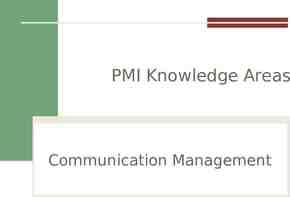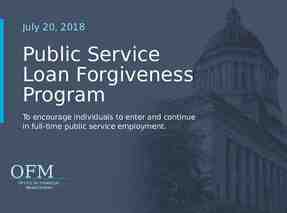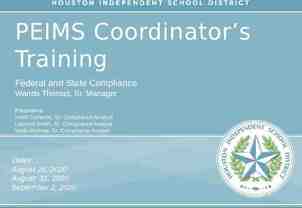ROLES AND RESPONSIBILITIES OF COMMISSIONERS AND CLERKS Jim McNall,
23 Slides112.57 KB

ROLES AND RESPONSIBILITIES OF COMMISSIONERS AND CLERKS Jim McNall, ICRMP Seth Grigg, IAC

COUNTY CLERK OF THE COURT, AUDITOR AND RECORDER Five distinct responsibilities: Clerk of the District Court – Article V, Section 16 – Judicial County Auditor – Article XVIII, Section 6 County Recorder Clerk to the Board of County Commissioners Chief Elections Officers – Title 34

COUNTY AUDITOR Chief Budget Officer (§31-1602, Idaho Code) Provides budget forms to county offices and departments to collect: Detailed revenues and expenditures from previous two years, Amounts received and expended in the current year, and Estimates for the ensuing year. Prepares preliminary budget for the board Publishes tentative budget Reconcile accounts/reports with treasurer

ROLE OF THE BOARD – COUNTY BUDGET Meet with County Auditor to assist with financial planning. Best practice: Meet with each elected official and department head to review budget and discuss revenues and expenditures. Adopt tentative budget to be published by 3rd week of August (§31-1603, Idaho Code) Hold a public budget hearing before the first Tuesday following the first Monday of September (§31-1605, Idaho). Any taxpayer may appear and be heard upon any part or parts of said tentative budget. Adopt the budget.

BOARD OF COUNTY COMMISSIONERS Three branches of government in one: 1.Executive Manager and Administrator 2.Legislative County Ordinances County Policy Resolutions 3.Judicial (Quasi) Planning and Zoning Board of Equalization

CLERK OF BOARD County Auditor is ex officio clerk of the board of commissioners (§31-707, Idaho Code) Records all proceedings of the board, including resolutions, ordinances, votes, and reports of officers (§31-708, Idaho Code) Preserves and files accounts acted upon by the board (§31-708, Idaho Code) Record orders levying taxes (§31-708, Idaho Code) Performs other duties required by law, rule, or order of the board (§31-708, Idaho Code)

BOARD OF COUNTY COMMISSIONERS Statutory Authority: Title 31 – General County Authority Chapter 7 – Structure, Term and Operations Chapter 8 – Powers and Duties Chapters 15 & 16 – Budget and Finance Chapters 34 & 35 – Indigency Title 63 – Property Tax Authority Chapter 5 – Equalization of Assessments Chapter 8 – Levy Authority

BOCC FIDUCIARY RESPONSIBILITIES Set the budget and revenue projections Approve all expenditures *** Set spending and investment policies Make sure policies are followed Conduct and pay attention to audit Be aware of upcoming revenue issues

BOCC RESPONSIBILITIES Supervision of county officers and appointed board and commissions (§31-802, Idaho Code) Acquisition and management of county property (§31-807, Idaho Code) Audit and oversight of county funds (§31-809, Idaho Code) Approval and payment of claims (§31-810, Idaho Code) Levy and apportionment of taxes (§31-811, Idaho Code) Fix salaries of county officers and salary/wage schedule for county employees (§31-816, Idaho Code)

BOCC RESPONSIBILITIES Filing of county elected official vacancies (§31-817, Idaho Code) Hiring staff (§31-818, Idaho Code) Grant leave of absence for county officials (up to 90 days) (§31-847, Idaho Code) Set county fees (§31-870, Idaho Code) Adopt records classification and retention schedule (§31-871, Idaho Code) Equalization of assessments (§63-501, Idaho Code)

BOCC RESPONSIBILITIES – COUNTY DEPARTMENTS Planning and Zoning Road and Bridge Noxious Weeds Parks and Recreation Computer Services/IT Public Defense Juvenile Detention Misdemeanor Probation County Agent Emergency Management Services Custodial/Maintenance Enterprise Fund Supported Services (i.e.: solid waste) Etc.

BOARD OF COUNTY COMMISSIONERS Appointment Authority Department heads Vacancy in county elected office County boards, committees, subcommittees, etc. Role as an Individual Commissioner Magistrate Commission Health District Budget Other Boards and Commissions

ROLE OF THE BOARD – PERSONNEL MANAGEMENT Adopt a personnel policy and keep it updated Adopted other policies such as: Use of vehicles Purchasing (who, when, how much, credit cards, etc.) Computer usage (including internet access and email) Adopt the budget to include salary/wage rates Appoint/hire department heads (under the direction of the board) Share concerns regarding employee performance or behavior with the appropriate county elected official or supervisor

ROLE OF THE BOARD AND PROSECUTOR – LEGAL ADVICE Prosecuting attorney is the legal advisor of the board and must attend board meetings when required (§312607) Prosecutor is also legal advisor to other county officials/offices Board should ensure that county officials have access to prosecuting attorney for legal advice

ROLE OF BOARD IN CONDUCTING MEETINGS Agenda – who sets? Chairman conducts and is a full participant. Allow (encourage) participants to discuss. Motions – need to be succinct, clear, comprehensive. Continuous meetings? Order of business? Spectator sport?

COMMON OPEN MEETING QUESTIONS The board will all be at a conference, do I need to post as a meeting? What if a citizen calls each board member individually? Can I violate the Open Meeting rules by e-mailing fellow board members? What about texting/tweeting by members during the meeting? To each other?

BOCC MEETINGS – DECISION MAKING A valid decision is: Made at a posted meeting with quorum present, Regarding an item legally on the agenda, Made by a motion and affirmative vote, and Recorded in the minutes. A decision is not: “Polling the board,” Gathering signatures, or Made without being placed on the agenda.

BOCC MEETINGS – ROLE OF STAFF Prepare and disseminate information Take minutes Record? Answer questions May provide regular reports on your area Etc.

MEETING MINUTES – SOME SUGGESTIONS Reflect what was decided at a meeting – (not what you wish had happened.) Minutes should be an expanded version of the agenda – Not on the agenda? Not a decision! Minutes are creating the history of the County, make the history clear to those who follow. Need not be a transcript – usually. What needs to be attached? Referenced? Why “approve” the minutes?

PUBLIC RECORDS Board sets records classification and retention policy (§31-871, Idaho Code) Each county office/department responsible for maintaining county records according to policy set by board Each county office responsible for responding to public records requests (not the board) Clerk of the board is the guardian of minute books, records and accounts which are to be housed in the office of the clerk (§31-710, Idaho Code)

ROLE OF CIVILITY IN COUNTY GOVERNMENT George Washington’s 110 Rules of Civility and Decent Behavior: “Every action done in company ought to be with some sign of respect, to those that present Use no reproachful language against anyone neither curse nor revile Labor to keep alive in your breast that little spark of celestial fire called conscience.”

RELATIONSHIPS WITHIN THE COURTHOUSE Responsibility vs. Authority Relationships with county offices Relationships with the state – does the state supervise county government? Relationships with other local units of government

QUESTIONS?






